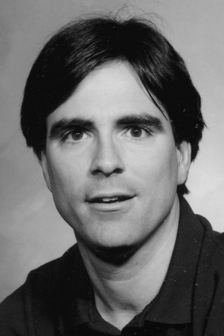|
Head Fake
In sports, a head fake is a type of feint in which someone moves the head to fake an intended change in direction and thereby deceive opponents. The term originated in sports, but it has become applied metaphorically in other senses. In financial markets, a ''head fake'' refers to a time when the market appears to be moving in one direction, but ends up moving in the opposite direction. For example, the price of a stock may initially move up, and all indications are that it will continue to move up, but shortly afterward, it reverses direction and starts moving down. In his "Last Lecture" entitled "Really Achieving Your Childhood Dreams" (at Carnegie Mellon on September 18, 2007), Randy Pausch refers extensively to "head fakes." He describes as a "head fake," for example, the phenomenon of parents encouraging their children to play football. Parents tell their children to play sports not because they really want them to become football stars, he says, but to help them develop collab ... [...More Info...] [...Related Items...] OR: [Wikipedia] [Google] [Baidu] |
Feint
Feint is a French term that entered English via the discipline of swordsmanship and fencing. Feints are maneuvers designed to distract or mislead, done by giving the impression that a certain maneuver will take place, while in fact another, or even none, will. In military tactics and many types of combat, there are two types of feints: feint attacks and feint retreats. Attacks A feint attack is designed to draw defensive action towards the point under assault. It is usually used as a diversion to force the enemy to concentrate more manpower in a given area, to weaken the opposing force in another area. Unlike a related diversionary maneuver, the demonstration, a feint involves actual contact with the enemy. Retreats A feint retreat, or feigned retreat, is performed by briefly engaging the enemy, then retreating. It is intended to draw the enemy pursuit into a prepared ambush, or to cause disarray. For example, the Battle of Hastings was lost when Saxons pursued the Norman cav ... [...More Info...] [...Related Items...] OR: [Wikipedia] [Google] [Baidu] |
Financial Market
A financial market is a market in which people trade financial securities and derivatives at low transaction costs. Some of the securities include stocks and bonds, raw materials and precious metals, which are known in the financial markets as commodities. The term "market" is sometimes used for what are more strictly ''exchanges'', organizations that facilitate the trade in financial securities, e.g., a stock exchange or commodity exchange. This may be a physical location (such as the New York Stock Exchange (NYSE), London Stock Exchange (LSE), JSE Limited (JSE), Bombay Stock Exchange (BSE) or an electronic system such as NASDAQ. Much trading of stocks takes place on an exchange; still, corporate actions (merger, spinoff) are outside an exchange, while any two companies or people, for whatever reason, may agree to sell the stock from the one to the other without using an exchange. Trading of currencies and bonds is largely on a bilateral basis, although some bonds trade o ... [...More Info...] [...Related Items...] OR: [Wikipedia] [Google] [Baidu] |
Really Achieving Your Childhood Dreams
"Really Achieving Your Childhood Dreams" (also called "The Last Lecture") was a lecture given by Carnegie Mellon University computer science professor Randy Pausch on September 18, 2007, that received widespread media coverage, and was the basis for ''The Last Lecture'', a ''New York Times'' best-selling book co-authored with ''Wall Street Journal'' reporter Jeffrey Zaslow. Pausch had been diagnosed with pancreatic cancer in September 2006. On September 19, 2006, Pausch underwent a pancreaticoduodenectomy to remove the malignant tumor from his pancreas. In August 2007, doctors discovered that the cancer had recurred. Pausch was given a terminal diagnosis and told to expect that three to six months of good health remained. The lecture was upbeat and humorous, alternating between wisecracks, insights on computer science and engineering education, advice on building multi-disciplinary collaborations, working together with other people, offering inspirational life lessons, and perfor ... [...More Info...] [...Related Items...] OR: [Wikipedia] [Google] [Baidu] |
Randy Pausch
Randolph Frederick Pausch (October 23, 1960 – July 25, 2008) was an American educator, a professor of computer science, human–computer interaction, and design at Carnegie Mellon University (CMU) in Pittsburgh, Pennsylvania. Pausch learned he had pancreatic cancer in September 2006. In August 2007, he was given a terminal diagnosis: "three to six months of good health left". He gave an upbeat lecture titled, " The Last Lecture: Really Achieving Your Childhood Dreams" on September 18, 2007 at Carnegie Mellon, which became a popular YouTube video and led to other media appearances. He co-authored a book of the same name, ''The Last Lecture'', which became a ''New York Times'' best-seller. Pausch died of complications from pancreatic cancer on July 25, 2008, aged 47. Early life Randolph Frederick Pausch was born in Baltimore, Maryland, and grew up in Columbia, Maryland. After graduating from Oakland Mills High School in Columbia, Pausch received his bachelor's degree in com ... [...More Info...] [...Related Items...] OR: [Wikipedia] [Google] [Baidu] |
Pump And Dump
Pump and dump (P&D) is a form of securities fraud that involves artificially inflating the price of an owned stock through false and misleading positive statements, in order to sell the cheaply purchased stock at a higher price. Once the operators of the scheme "dump" (sell) their overvalued shares, the price falls and investors lose their money. This is most common with small-cap cryptocurrencies and very small corporations/companies, i.e. " microcaps". While fraudsters in the past relied on cold calls, the Internet now offers a cheaper and easier way of reaching large numbers of potential investors through spam email, investment research websites, social media, and misinformation. Scenarios Pump-and-dump schemes may take place on the Internet using an email spam campaign, through media channels via a fake press release, or through telemarketing from " boiler room" brokerage houses (such as that dramatized in the 2000 film '' Boiler Room''). Often the stock promoter will cla ... [...More Info...] [...Related Items...] OR: [Wikipedia] [Google] [Baidu] |
Financial Markets
A financial market is a market in which people trade financial securities and derivatives at low transaction costs. Some of the securities include stocks and bonds, raw materials and precious metals, which are known in the financial markets as commodities. The term "market" is sometimes used for what are more strictly ''exchanges'', organizations that facilitate the trade in financial securities, e.g., a stock exchange or commodity exchange. This may be a physical location (such as the New York Stock Exchange (NYSE), London Stock Exchange (LSE), JSE Limited (JSE), Bombay Stock Exchange (BSE) or an electronic system such as NASDAQ. Much trading of stocks takes place on an exchange; still, corporate actions (merger, spinoff) are outside an exchange, while any two companies or people, for whatever reason, may agree to sell the stock from the one to the other without using an exchange. Trading of currencies and bonds is largely on a bilateral basis, although some bonds trade o ... [...More Info...] [...Related Items...] OR: [Wikipedia] [Google] [Baidu] |

